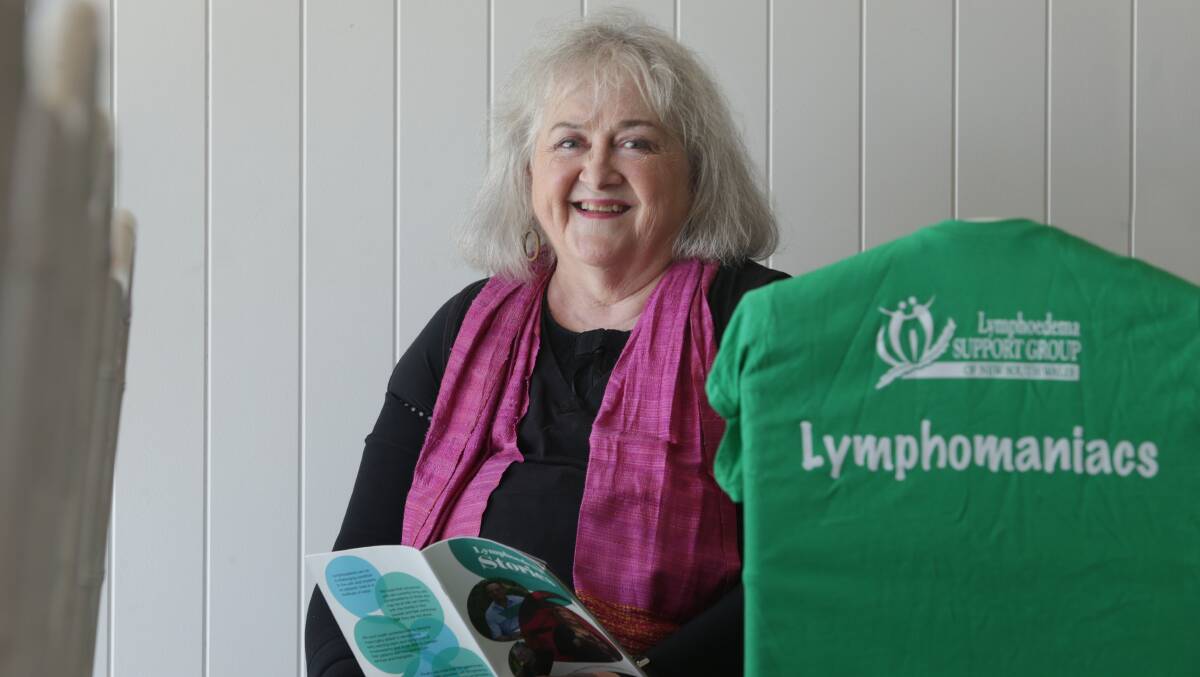
A Sutherland Shire-based support group for people with lymphoedema is resuming in-person meetings for the first time in more than a year.
Create a free account to read this article
$0/
(min cost $0)
or signup to continue reading
Anne Forster, of Lilli Pilli, co-founded the first lymphoedema support group in southern Sydney, under the umbrella of the Lymphoedema Support Group of NSW, to support people living with the debilitating, chronic condition and provide information to improve their lives.
According to the Lymphoedema Support Group of NSW, many sufferers become isolated due to the nature of the long-term condition, which causes excess fluid to collect in tissue, resulting in swelling, or oedema.
The group held its first meeting in 2019, just months before COVID-19 restrictions began.
"It got off to a great start and then suddenly had to stop meeting," Ms Forster said.
"Over the past year, the group used a variety of strategies to keep connected with members, who kept up a stream of communication methods, contributing to a monthly newsletter, volunteering on a telephone tree, visiting isolated members and occasional meetings in groups of two or three for coffee."
Lymphoedema can occur anywhere in the body, but most often occurs in limbs, as a result of a primary or secondary condition, such as trauma caused by cancer treatment.
There is no cure and treatment consists mainly of manual lymphatic drainage and the use of compression bandages and garments, which are expensive and must be replaced every six months.
While it can be managed if treated early, the condition can worsen over time and can cause infections, such as cellulitis or ulcers, or secondary lymphoedema disease.
Ms Forster said members of the support group had developed lymphoedema from multiple causes, including surgery, burns, injuries or cancer treatments.
"Some people are born with the condition, which can emerge at any age, a form called lipoedema," she said.
"Children, young people and adults of all genders get lymphoedema.
"It is a disease that grows with you, progresses and requires continuous care and changes to the way it is managed."
Ms Forster said while swollen limbs could be seen, what was often unseen was the devastating impact of a misshapen body on a person's self-esteem and identity.
"It is a life sentence that people carry silently," she said.
"The burden of daily pain and the discomfort of heavy limbs impacts strength and mobility."
She said too many people suffer with the condition without knowing about the range of resources available, which is where the group comes in.
"People need information about government subsidies for compression garments, education opportunities through workshops and webinars, ways to find accredited lymphoedema therapists in the local area and information about assisting technologies," she said.
The group will meet on the third Thursday of every month from 1pm to 2.30pm at Tradies Gymea members lounge, and feature a different guest speaker each month.
The first meeting, this Thursday, June 17, will hear from lymphoedema therapist Laura Stafford, of Blakehurst Physiotherapy.
"Laura, from Blakehurst Physiotherapy, is keen to understand the diversity of lymphoedema in our group," Ms Forster said.
"Everyone is different and Laura knows patients bring knowledge from their individual experiences after many years with the condition.
"On the other hand, those with a new diagnosis can be anxious and don't know what they want.
"This will be a discussion that will go in many directions."
Details: Anne Forster, 0411 696 772 or email anne.forster.au@gmail.com; or Cheryl Brighton: 0403 200 105 or email cbrighton@y7mail.com.

